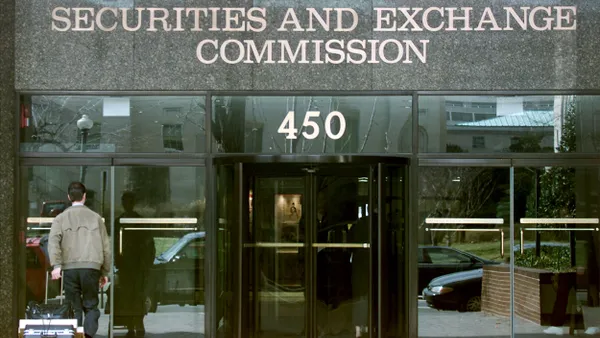Dive Brief:
- On Monday a Texas federal judge struck down a controversial Biden-era policy that sought to require nursing homes to increase their staffing and have a registered nurse on premise around the clock.
- Judge Matthew Kacsmaryk said the policy was “laudable” in its goal of improving nursing home quality, but that the HHS had ultimately overstepped its authority in issuing the rule.
- The plaintiffs, nursing home trade organizations including the American Health Care Association and LeadingAge, cheered the decision on Monday. The groups have argued the staffing requirements were too onerous and could have led to nursing home closures.
Dive Insight:
From its inception in 2023, the landmark staffing mandate has been unpopular among both industry groups and some politicans, who have argued the industry can’t hire enough to meet the proposed staffing quotas.
The CMS estimated 79% of nursing homes would have to increase hiring to meet the requirement of providing 3.48 hours of patient care per resident, per day, while KFF predicted 81% of facilities would have to hire additional staff.
The mandate was also likely to be expensive.The CMS predicted it could cost the industry anywhere from $1.5 billion to $6.8 billion to meet the hiring targets.
Before the Biden administration finalized the rule in April 2024, some lawmakers urged the the CMS to consider negative impacts on veteran care should nursing homes shutter and introduced bills attempting to block the rule from being finalized.
Still, the policy moved forward.
The rule was intended to address quality concerns brought to light during the COVID-19 pandemic, according to the Biden administration, which cited research that found higher staffing levels were associated with better care outcomes for patients.
The administration intended ease the implementation burden on providers by phasing in the rule over a period of three years for non-rural providers and five years for rural providers. However, industry groups and some politicians still pushed back on the policy.
Both the state of Texas and nursing home organizations sued the HHS and the CMS in the Northern District Court of Texas last year to block the rule.
Kacsmaryk, who presides over the court, was appointed by Trump and has ruled frequently in favor of a de-regulatory agenda. Independent watchdog organizations and media outlets have accused plaintiffs of judge shopping to appear before the conservative judge.
In this case, Kacsmaryk said he was sympathetic to the Biden administration’s desire to improve care quality at nursing homes, but that the rule overstepped Congress in creating a 24-7 registered nurse requirement. The judge noted Congress had specifically considered whether to implement such a requirement previously, and opted not to do so, both when a committee reviewed a similar suggestion and when Congress allowed a bill advancing a 24-7 nursing policy to die in session.
“The court decision not only upholds the rule of law and balance of powers, but it protects access to care for our aging population,” Clif Porter, President and CEO of AHCA and the National Center for Assisted Living, said in a news release.
Katie Smith Sloan, president and CEO of LeadingAge agreed, adding, “The mandate ignored the critical interdependence of funding, care, staffing, and quality, and would have severely impacted our ability to provide the care and services that our nursing home members, along with providers in other care settings such as home health and hospice, deliver every day.”
The HHS did not immediately respond to a request for comment.













